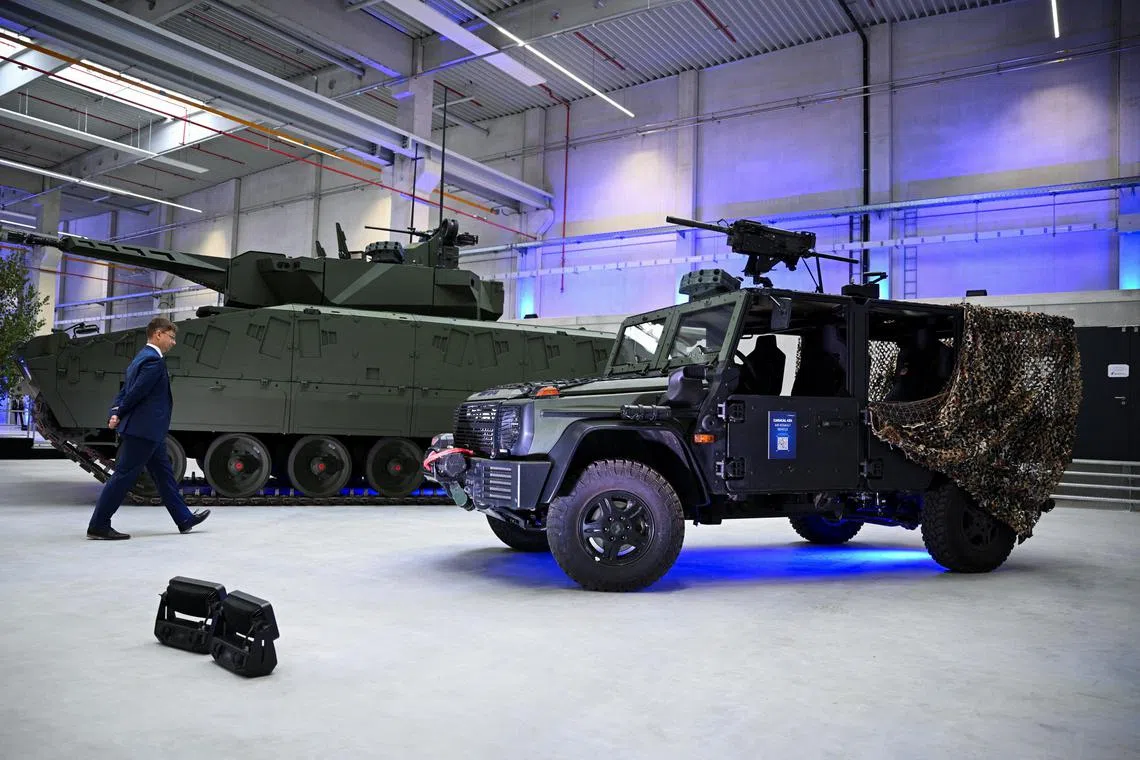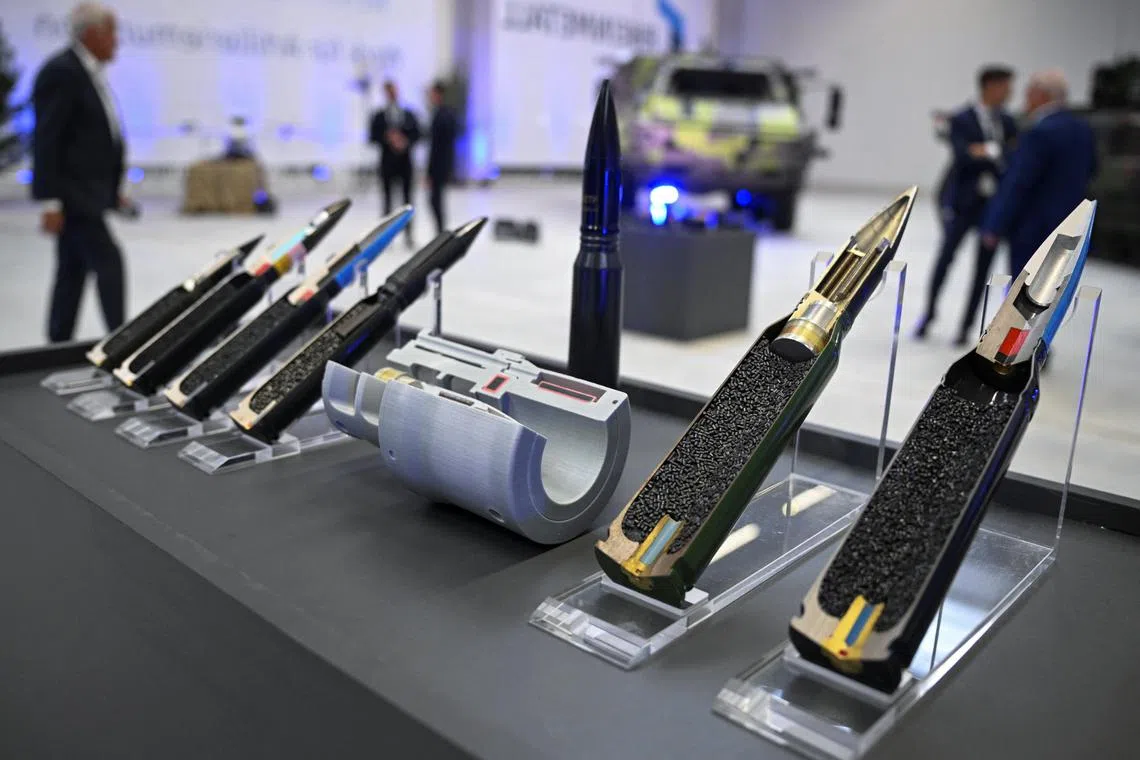German weapons-maker Rheinmetall opens mega-plant as Berlin rearms
Sign up now: Get ST's newsletters delivered to your inbox

Present at the Aug 27 opening of the plant are (from left) Nato secretary-general Mark Rutte, German Defence Minister Boris Pistorius and Rheinmetall chief executive officer Armin Papperger.
PHOTO: EPA
- Rheinmetall opened Europe's largest munitions plant in Germany to produce 350,000 artillery shells annually by 2027.
- Germany is rearming, driven by Chancellor Scholz's "turning point" in defence policy after Russia's invasion of Ukraine.
- The plant will help fulfil a record €8.5 billion munitions order, supporting Germany's aim to build Europe’s "strongest conventional army".
AI generated
UNTERLUESS, Germany - German weapons-maker Rheinmetall opened Europe’s largest munitions plant on Aug 27 as Berlin rushes to rearm after decades of running down its military.
Taking up 30,000 square metres – the size of five football pitches – the factory in Unterluess in northern Germany will be able to produce 350,000 artillery shells a year by 2027.
“Building this factory proves that Germany can do things quickly when it really matters,” Rheinmetall chief Armin Papperger
“Our country – as part of a Europe which has to take responsibility for its security now more than ever – is taking responsibility.”
Nato chief Mark Rutte was attending the plant’s opening ceremony alongside German Defence Minister Boris Pistorius and Finance Minister Lars Klingbeil.
Berlin has moved to rearm itself following Russia’s full-scale invasion of Ukraine
German Chancellor Friedrich Merz has vowed to build Europe’s “strongest conventional army” and has amended debt rules to let the government borrow billions for military equipment.
Mr Papperger said the plant’s construction over the past 15 months was a “direct consequence” of Mr Merz’s predecessor, Mr Olaf Scholz, announcing a “turning point” in German defence policy following Russia’s full-scale invasion of Ukraine.
The plant will help fill a record-breaking munitions order worth €8.5 billion (S$12.7 billion) placed by the German government in July 2024.

A Caracal 4x4 all-terrain vehicle and a Lynx infantry fighting vehicle (IFV) on display at the Aug 27 opening of the plant.
PHOTO: REUTERS
Rheinmetall’s Unterluess site already makes guns and munitions for the Leopard 2 tank, which has been used by the Ukrainian army.
Germany’s Cabinet signed off a draft law
About 182,000 soldiers currently serve in the armed forces. Mr Pistorius has said that should rise to 260,000. AFP

Ammunition for infantry fighting vehicles and air defence systems. The plant will be able to produce 350,000 artillery shells a year by 2027.
PHOTO: REUTERS


